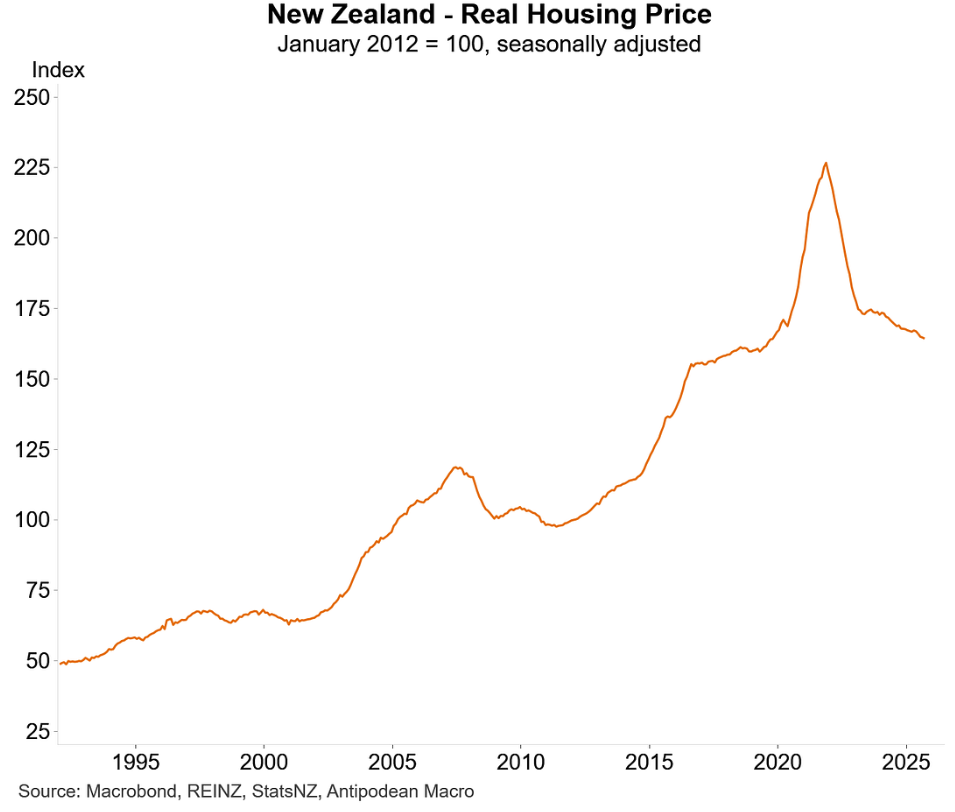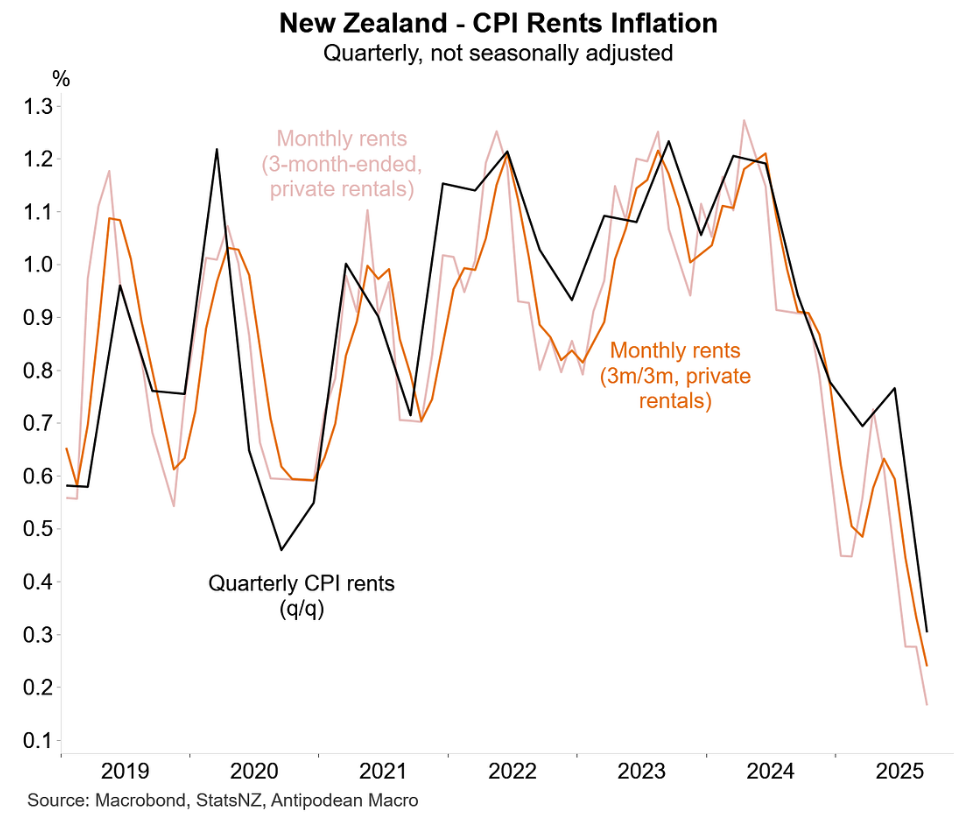New Zealand experienced one of the developed world’s largest rises in home values over the first 25 years of this century.
However, as illustrated below by Justin Fabo from Antipodean Macro, New Zealand dwelling values have recently crashed back to 2019 levels, representing one of the largest property busts in the developed world.

One year ago, former New Zealand Prime Minister Bill English told Kiwis to get used to falling real home values.
“Our housing is too expensive”, English told delegates to the INFINZ (Institute of Finance Professionals New Zealand Inc) conference in October 2024.
“A lot of people don’t want … holding or lowering house prices”, he said.
“I’m not worried about that”, said English, father to six Zoomers [Gen-Z’s] and Millennials. “Get used to it. It’s going to be that way”.
“If we successfully deal with housing affordability, your house prices are not going to go up for the next 15 years, much”, he said.
Bill English returned last week, declaring that the era of rapid house price growth has ended and that “the days of guaranteed capital gains in the housing market are over”.
It is refreshing to hear a former Prime Minister speak in such a blunt manner.
The reality is that if housing is to become more affordable, prices and rents must necessarily come down, at least in real inflation-adjusted terms.

Sadly, Australia’s politicians have not gotten the memo and continue to pump-prime prices and rents through self-defeating demand-side policies like Labor’s 5% deposit scheme for first home buyers and endless high immigration.
It also appears that the current National Government under Chris Luxon is less committed to affordable housing than Bill English.
Luxon has already committed to removing the ban on foreign buyers purchasing New Zealand homes.
The national government also aims to increase immigration using three visa pathways, namely:
- the new ‘Parent Boost’ visa, which allows migrants to bring their parents to New Zealand for up to ten years.
- the new foreign investor visa to attract wealthy individuals and boost economic growth.
- the government increased the number of hours permissible for international students to work during the academic semester from 20 to 25 hours per week in a bid to increase enrolments.
The Reserve Bank of New Zealand has also relaxed lending rules to allow banks to provide more low-deposit mortgages to property investors and home buyers.
Bill English’s sage comments are at odds with the government’s actions on foreign buyers and migration.
The government seems intent on reigniting New Zealand’s housing market.

